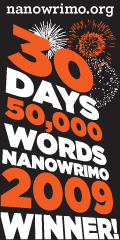
I talked to some relatives back East yesterday. They were chipping ice off the driveway, having icicle measuring contests (the unofficial winner: eight feet long), and trying to keep the kids from snowboarding off the roof.
I did my best not to gloat. I didn’t tell them about the camellias blooming at my doorstep. Or the primroses lighting up gardens all over town. Or the fact that Seattle just went in the record books for the warmest January in more than a hundred years.
I feel that Seattle has earned the respite. The first year we moved here the city was slogging through a stretch of record rain that made national news (forty days-plus without the ark). The next winter a series of windstorms, ice events and floods started me wondering if we’d been sold a bill of goods by the folks who had assured us Seattle’s winters were uniformly mild. The third winter a foot of snow paralyzed the city for more than a week. People were stranded at Sea-Tac for days at Christmas. And of course the city doesn’t keep a fleet of snowplows handy because, I guess, they bought into the same myth of the mild winter.
So this year, I was braced for whatever – earthquake, mudslide, volcano eruption. But it seems this was the payoff year. Gentle temperatures. Daily sunbreaks. Sometimes whole sunny days! It’s been pretty great.
I feel for my friends back east. It’s never fun to be snowed in after the novelty wears off and the electricity and heat go off as well. I know from personal experience that shoveling driveways builds character. But once that character is built, it can be a bit of a trial to have to keep rebuilding it every time the clouds roll in and dump another foot or two of snow.
Here in Seattle the average annual rainfall is 37 inches. That’s less than Virginia’s average of 45 inches, or Florida’s average of 54 inches. What makes Seattle different is that instead of summer thundershowers which dump an inch or two at a time, Seattle gets a steady, drizzling mist over an eight month period from October to May. It takes some getting used to. But considering some of the alternatives, there’s a lot to be said for gentle rain.
In “The Good Rain,” Timothy Egan’s remarkable history of the Pacific Northwest, he credits the unusual climate of this region for shaping its history. In modern times we like to think we are immune to climate. Insulated by air conditioning, heating, and increasingly elaborate water management techniques, we act as if we no longer need to consider the realities of geography. And this recent spate of blizzards has all the climate change skeptics fired up anew, claiming a few days of record snowfall is sufficient to overturn decades of slow and careful scientific data gathered worldwide.
Our human perspective is so limited. Many centuries ago, ancient cultures thought weather gods could be appeased by sacrifices. In our own time, the force of hurricanes, snowstorms and typhoons appears to be escalating. Whether or not global warming is responsible for the planet’s wild mood swings, it looks like we could be in for a rough ride in the coming centuries.
But if I have to choose between a snow shovel and an umbrella, I’ll take the umbrella.


